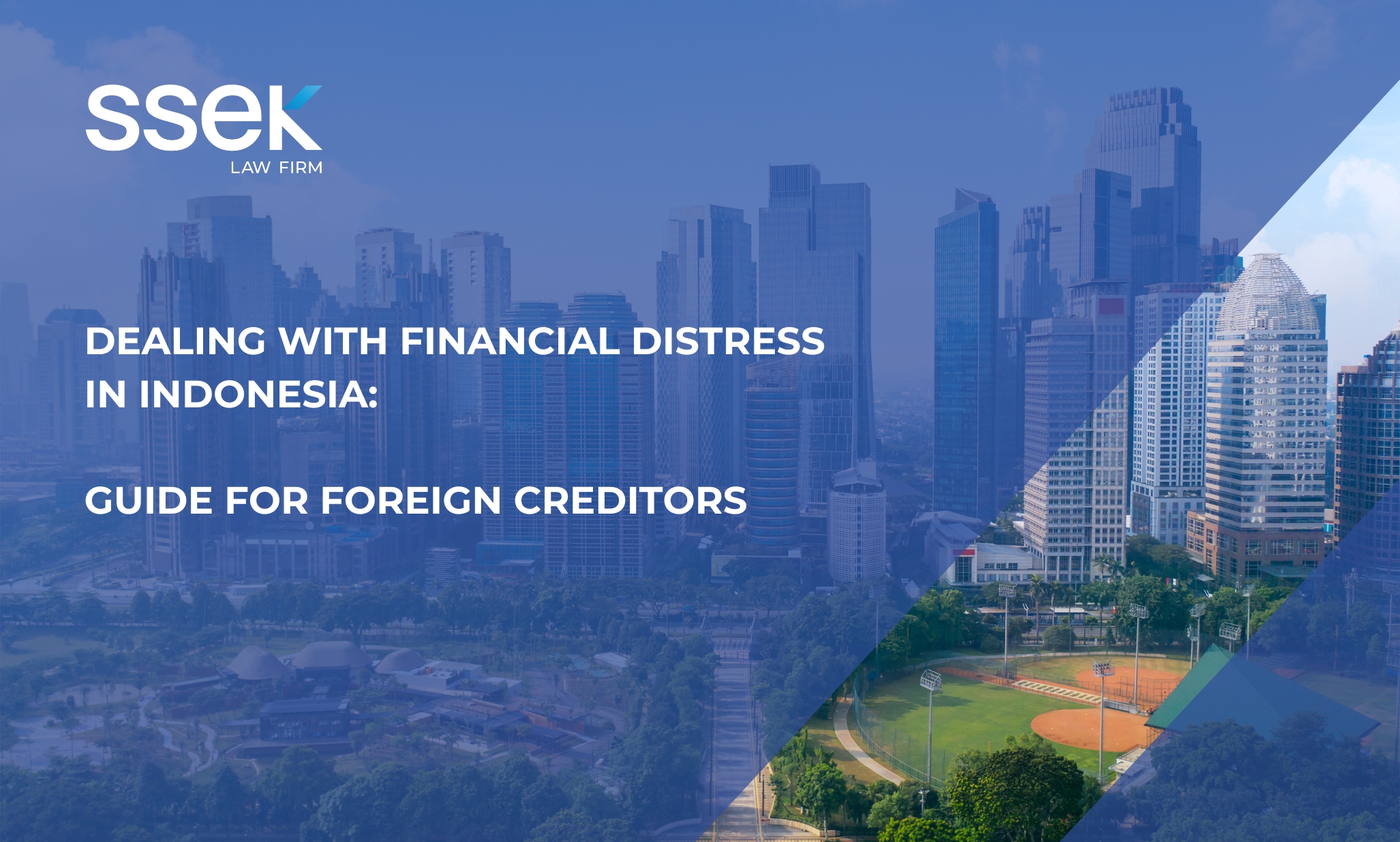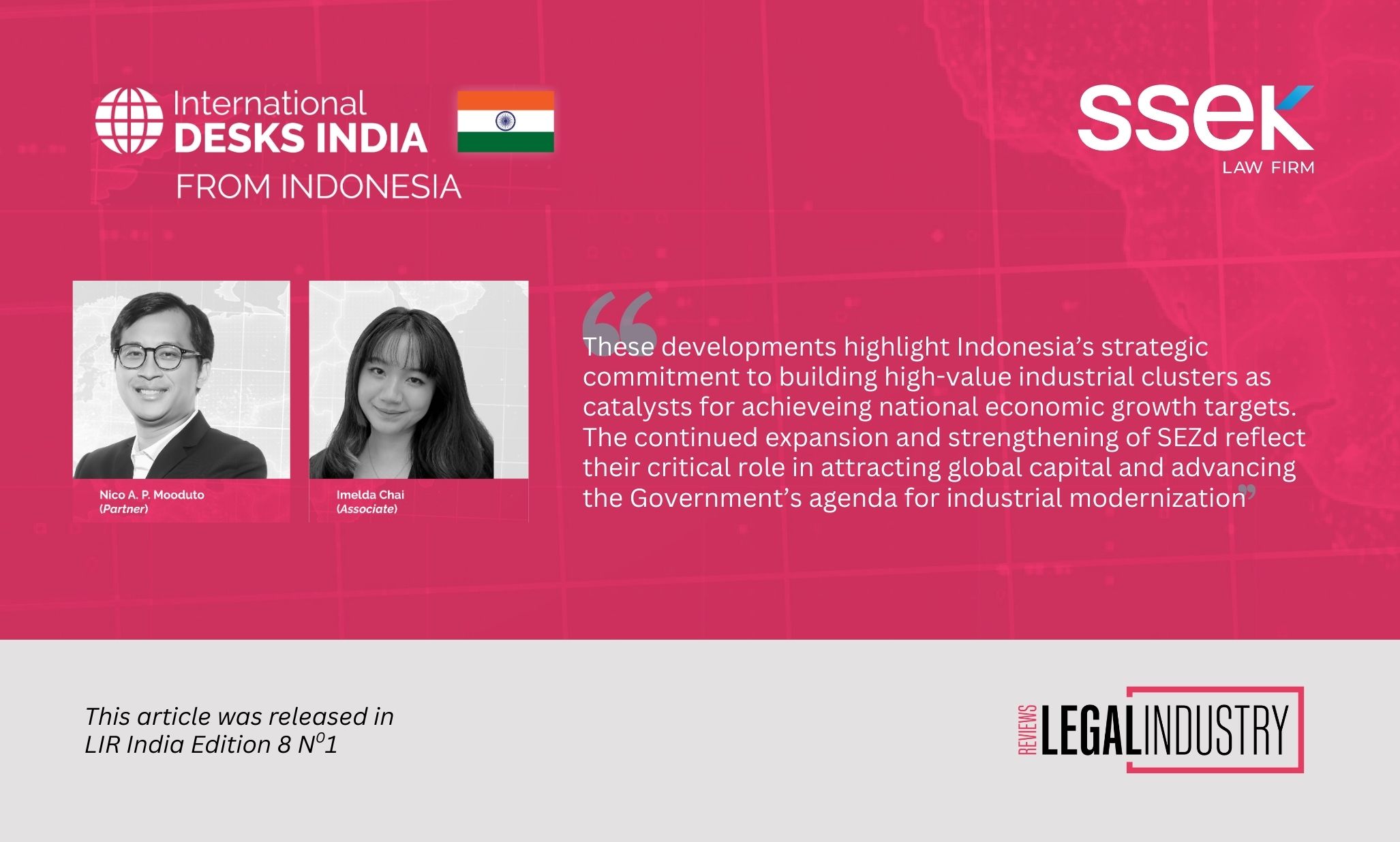

Following the issuance of Law No. 11 of 2020 on Job Creation ("Omnibus Law"), the Government of Indonesia has released the long-awaited new Investment List, under Presidential Regulation No. 10 of 2021 regarding Investment Sectors ("New Investment List"). The stated aim of the New Investment List is to boost foreign investment in Indonesia. It came into force on March 4, 2021 and replaces the previous Negative Investment List (Daftar Negatif Investasi or "Negative List") under Presidential Regulation No. 44 of 2016.
As anticipated, the New Investment List significantly relaxes investment restrictions under the Negative List. We will focus here on changes to investment in the healthcare sector under the New Investment List.
Key Changes - Liberalizing Investment in Healthcare Sector
Under the Negative List, healthcare, one of the more heavily regulated industries in Indonesia, was subject to a number of restrictions on foreign investment. Most of these restrictions have now been lifted, unless otherwise regulated by more specific regulations.
For example, under the Negative List, hospitals were subject to 67% maximum foreign ownership for non-ASEAN investors and 70% for ASEAN investors. These foreign ownership caps are not included in the New Investment List, which means that hospitals should be open for 100% foreign ownership. However, Government Regulation No. 47 of 2021 on Hospital Administration, an implementing regulation for the Omnibus Law, requires that any hospital with foreign ownership have at least 200 beds. This regulation in effect prohibits foreign investment in hospitals with fewer than 200 beds.
The New Investment List also liberalizes foreign investment in the pharmaceutical manufacturing business, which previously was subject to 85% maximum foreign ownership. Under the New Investment List, there is no longer any foreign shareholding cap applicable for this line of business.
Similarly, there is no foreign shareholding cap in the New Investment List for the pharmaceutical wholesaler business. In the past, pharmaceutical wholesaling was closed for foreign ownership under a long-standing policy of the Ministry of Health, despite not being included in the Negative List. While there is no guarantee the same Ministry of Health policy will not again be imposed, we believe that with the current wave of investment liberalization, the pharmaceutical wholesaler business will be open for 100% foreign ownership.
The table below highlights key segments of the healthcare sector that have seen a significant relaxation of investment restrictions under the New Investment List:
| Business Activity | Negative List | New Investment List |
| Pharmaceutical Manufacturing | 85% maximum foreign ownership | Open for 100% foreign ownership |
| Pharmaceutical Wholesaler | Closed for foreign ownership | Open for 100% foreign ownership |
| Raw Pharmaceutical Wholesaler | Closed for foreign ownership | Open for 100% foreign ownership |
| Hospitals | 67% foreign ownership (70% for ASEAN investors) |
Open for 100% foreign ownership, but subject to minimum number of beds |
| Medical Devices Distributor | Maximum 49% foreign ownership | Open for 100% foreign ownership |
| Medical Devices Testing | Maximum 67% foreign ownership | Open for 100% foreign ownership |
Business Lines Reserved for Cooperatives and MSMEs
Similar to the previous Negative List, the New Investment List contains a number of business activities that are reserved for Indonesian cooperatives (koperasi) and micro, small and medium enterprises ("MSMEs"), or which are open to foreign ownership but subject to a partnership arrangement with Indonesian cooperatives or MSMEs. Reserving business activities for cooperatives and MSMEs in effect closes these activities to foreign investment, since foreign investment in Indonesia must be made as a large-scale business. An example of this restriction is the retail trading of pharmaceutical products at pharmacies.
Business activities that require a partnership with cooperatives and/or MSMEs are still open for foreign investment, provided that the foreign invested company engage with local cooperatives of MSMEs. One example of a business activity that falls under this requirement is Class A Medical Devices Manufacturing.
Remaining Restrictions
Other than the above business-specific requirements, the New Investment List imposes foreign ownership limitations for two healthcare business lines, those being Traditional Medicine Manufacturing and Manufacturing Raw Materials for Traditional Medicine. Both lines of business are 100% closed for foreign ownership.
Implementation and Exceptions
The New Investment List came into force on March 4, 2021. Existing business entities engaging in a business that is no longer subject to foreign ownership restrictions can now restructure their shareholding in keeping with the current investment framework under the New Investment List.
Also note that for those few healthcare business activities still subject to foreign shareholding limitations under the New Investment List, exceptions to these limitations may apply in certain circumstances where the business is:
- located in a Special Economic Zone;
- conducted through indirect/portfolio investments in the domestic capital market;
- grandfathered from a previous and more favorable investment framework; or
- subject to more favorable treatment in a treaty between Indonesia and the investor's country of origin.
The New Investment List represents a significant step by the Government of Indonesia to liberalize foreign investment in the healthcare industry, in particular healthcare wholesalers. However, it remains to be seen how the other technical ministries, including the Ministry of Trade, which supervises the general wholesaler and trading business, will align with the New Investment List. In particular, we will have to see how the Ministry of Trade reconciles the New Investment List with the existing prohibition on companies with foreign shareholding acting as a wholesaler or distributor unless it appoints a local wholesaler and/or distributor.
While we will have to closely monitor how the New Investment List is implemented in practice, we believe that it demonstrates the commitment of the current administration to reduce barriers to foreign investment and promote economic liberalization.
This publication is intended for informational purposes only and does not constitute legal advice. Any reliance on the material contained herein is at the user's own risk. All SSEK publications are copyrighted and may not be reproduced without the express written consent of SSEK.









